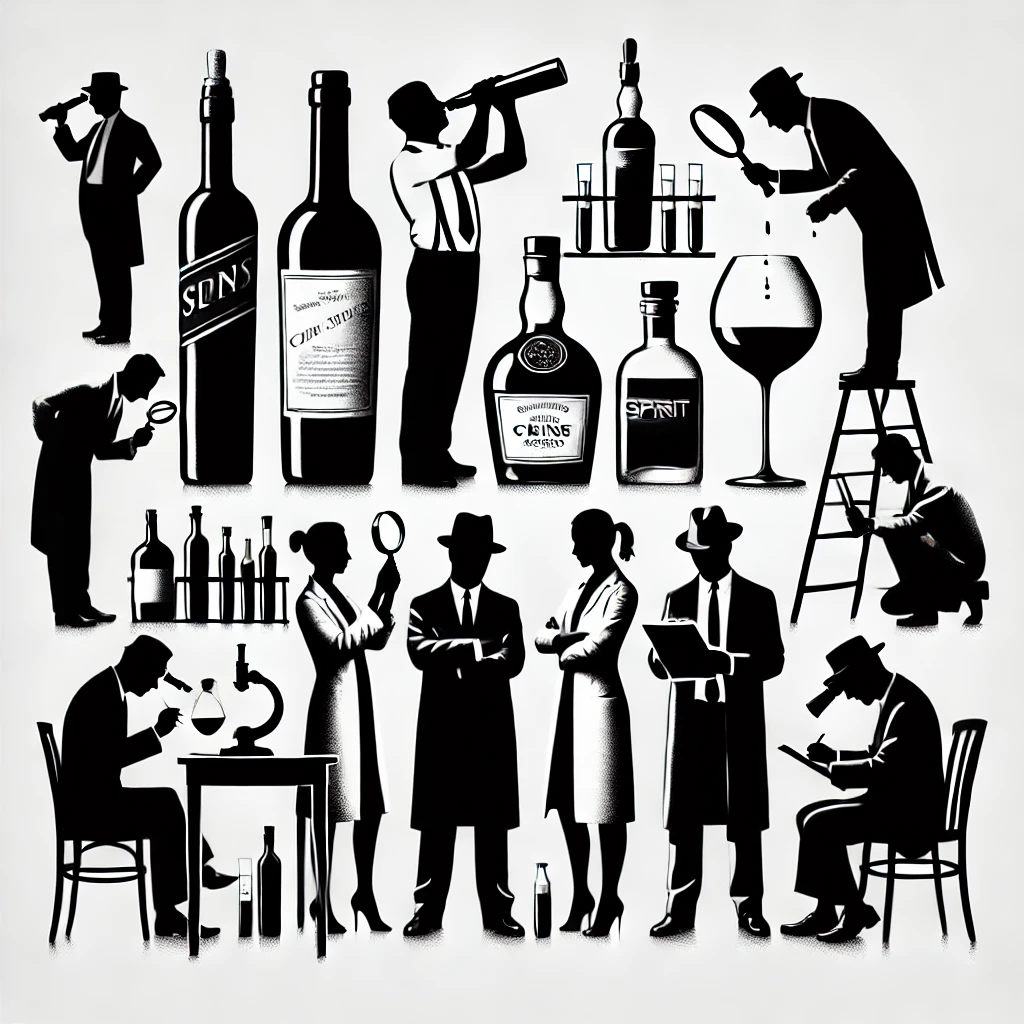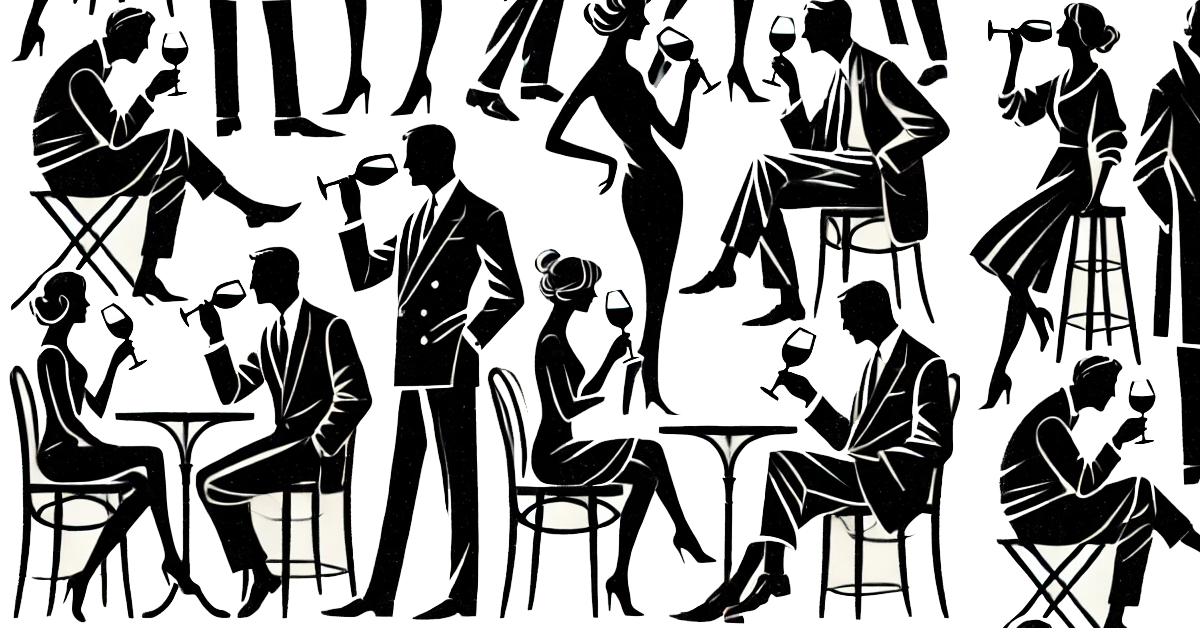by Jonathan Cristaldi and Joe Roberts
You’ve probably noticed that alcoholic beverages have been under siege lately. We’re not talking about the growing abstinence movement, or the notion that wine is somehow cheugy (which we’ve just proven simply by using the word “cheugy,” which no one under thirty ever uses now).
No, we’re talking about a war on alcohol consumption at some of the highest levels of government globally, with the requisite ubiquitous media coverage that makes it all seem, somehow, even worse.
The attacks have come in faster and more furious than Dominic “Dom” Toretto speeding down the road chasing after terrorist mercenaries. There have been reports of studies suggesting that alcohol hits people harder in middle age (well… duh).
Complaints have come in that the USA is behind other developed nations in warning its citizens against alcohol abuse.
Probably most alarming have been the reports that, due to studies suggesting increased risk of health issues and cancer with even moderate alcohol consumption, both the World Health Organization (WHO) and the U.S. Surgeon General will be calling for alcoholic beverages sold in the USA to carry cancer warnings (the latter coming on the heels of a global downturn in wine consumption because, hey, our timeline kinda sucks from time to time so why not kick them while they’re down, right?).
All of a sudden, any booze consumption is just, somehow, not only cheugy, but just BAD.
As you will no doubt have already guessed, we want to call bullsh*t on that. You see, alcohol has almost certainly always been, simultaneously, somewhat of a health risk and a boon to health and happiness, the latter of which we seem to be conveniently forgetting in the whirlwind of media cycles that focus mostly on the “new” in “news.”
But before we put on our waders and start to sift through the media BS, we have a few administrative caveats to get out of the way:
- We are talking about moderate consumption of alcohol, not binge drinking. Moderate consumption is our focus. That is: 2 units of 5 ounces of alcohol per day (let’s call it two drinks). That’s the going rate for men, and its roughly half of that amount for women. If you think that you might need to reduce your alcohol intake, there is help out there for you (but we’re not them).
- We are not doctors, and we are not offering medical advice (but, as you’ll discover if you keep reading, we know someone who is and who can).
- Even we can’t resist a good Henny Youngman line right about now: “My doctor told me to watch my drinking, so now I drink in front of a mirror.” But of course, this is no laughing matter. So, on with the seriousness-ness.
Perhaps you’ve read “Should You Change Your Wine Consumption?” by Eric Asimov, the longtime wine scribe for The New York Times, who summarizes how most of us wine pros feel in the wake of the sudden declaration of all booze consumption as dangerous: “The surgeon general’s warning suggested that I’ve not only been engaging in risky behavior but recommending it to others as well. I felt bad, and defensive. How could this beautiful beverage that I love be considered hazardous when consumed in a thoughtful, careful way? Does that make me the equivalent of a drug pusher? Why single out alcoholic beverages? What about the risks of sugary soft drinks or ultraprocessed foods?”
Asimov goes on to state what reasonable folks have likely been pondering since the ‘Booze=BAD’ media coverage began: “Out-of-control consumption can be a menace, posing dangers to oneself and to society. That can’t be ignored. But neither can the social, emotional and aesthetic joys that wine and other alcoholic beverages have provided for centuries. These can’t entirely be dismissed.”
He’s right; alcohol’s more salubrious effects cannot be entirely dismissed, precisely for the very same reason that its ills cannot be ignored, either: they are backed by rigorous scientific and medical findings. If there’s a TL;DR takeaway from our little diatribe here, it’s this: moderate drinking of alcohol has some benefits that didn’t just go away all of a sudden.
Back to that hard science: there’s a stellar presentation available online from Dr. Laura Catena, who not only is the fourth generation vintner behind Argentina’s Catena Zapata, but also happens to be a Harvard-trained biologist with a medical degree from Stanford. This places her at a unique nexus of the two “sides” of this issue.
Unsurprisingly, Catena has much to say about the topic of alcohol’s health pitfalls and benefits. Here are a few of the highlights of alcohol’s health benefits(taken both from her presentation and from conversations we’ve had with her), all backed up by medical research:
Moderate drinking has been linked to a 20-40% reduction in major adverse cardiac events and lower stress levels overall; can raise HDL (“good” ) cholesterol, might help prevent plaque formation in the bloodstream, and helps lower blood glucose levels and reduce Type 2 diabetes risk.
According to research cited by Catena, moderate alcohol consumption might also lower risks of thyroid and kidney cancers, as well the risk of as of hematologic malignancies. Catena cites that some studies suggest cognitive benefits (like reduced cognitive decline) from the occasional sip or two, as well.
For you “bUt fOlLoW tHe mOnEy!!” conspiracy theorists out there: over 80% of these studies were not funded by the booze industry.
Here’s where the rubber hits the road: alcohol consumption has been shown to potentially increase the risks of some cancers, like mouth, throat, esophageal, breast (in women), liver, and colorectal. If that’s true even for moderate consumption, then, yes, we ought to be concerned about that.

So, what can you do right now, and forever more, or until science proves beyond a shadow of a doubt that even a drop of alcohol will cut your life royally short? Here’s a mix of ours and Catena’s drinking advice:
- Drink less, and drink better.
- Drink one glass of water for each glass of alcohol.
- Drink with meals to help lower the rate of alcohol absorption.
- Exercise with HIIT, prioritize a healthy sleep schedule, and eat more vegetables and less proteins.
- The best advice you’ll ever get is to ensure good digestion and proper hydration. Drink high-pH mineral water to offset your acid intake from alcohol.
- Snack on foods that slow the absorption of alcohol, like almonds and olives.
- Pay attention to alcohol levels on bottles. The lower, the better.
- Do your research. Many value-priced bottles of wine and flavored spirits are loaded with residual sugars. Avoid drinking these on a regular basis. Focus on the enjoyment of a high-quality product to accompany a meal. You can always obtain a technical sheet that describes how a wine or spirit was made, often lists ingredients, and if you’re unsure, reach out t othe producer and ask questions. Because, ya know, the more you know…
References
- https://www.decanter.com/wine-news/opinion/the-failure-of-the-surgeon-general-eliza-dumais-on-the-irrelevance-of-warning-labels-550293/
- https://www.decanter.com/wine/katherine-cole-yes-we-are-all-doomed-to-die-but-wine-wont-do-us-in-523310/
- https://indefenseofwine.com/ | In Defense of Wine
- https://www.wsj.com/health/wellness/my-vintner-friend-whos-also-a-doctor-says-its-ok-to-keep-drinking-c2db47fd | My Vintner Friend (Who’s Also a Doctor!) Says It’s OK to Keep Drinking – WSJ
- https://daily.sevenfifty.com/what-the-headlines-get-wrong-about-alcohol-and-health/ | What the Headlines Get Wrong About Alcohol and Health | SevenFifty Daily
- https://www.nytimes.com/2025/01/16/dining/drinks/surgeon-general-warning-wine-consumption.html | Should You Change Your Wine Drinking? – The New York Times
- https://www.nytimes.com/2025/01/09/well/alcohol-middle-age.html | Alcohol Carries New Risks in Middle Age – The New York Times
- https://www.nytimes.com/2025/01/14/health/alcohol-cancer-heart-stroke.html | Moderate Drinking Raises Health Risks While Offering Few Benefits – The New York Times
- https://www.nytimes.com/2025/01/01/health/alcohol-dietary-guidelines.html | Evidence Against Drinking Has Grown. Will Federal Advice Change? – The New York Times
- https://www.nytimes.com/2025/01/03/health/alcohol-surgeon-general-warning.html | U.S. Surgeon General Calls for Cancer Warnings on Alcohol – The New York Times
https://www.winebusiness.com/news/link/298402?utm_source=email_dne&utm_medium=email&utm_campaign=link_dne







